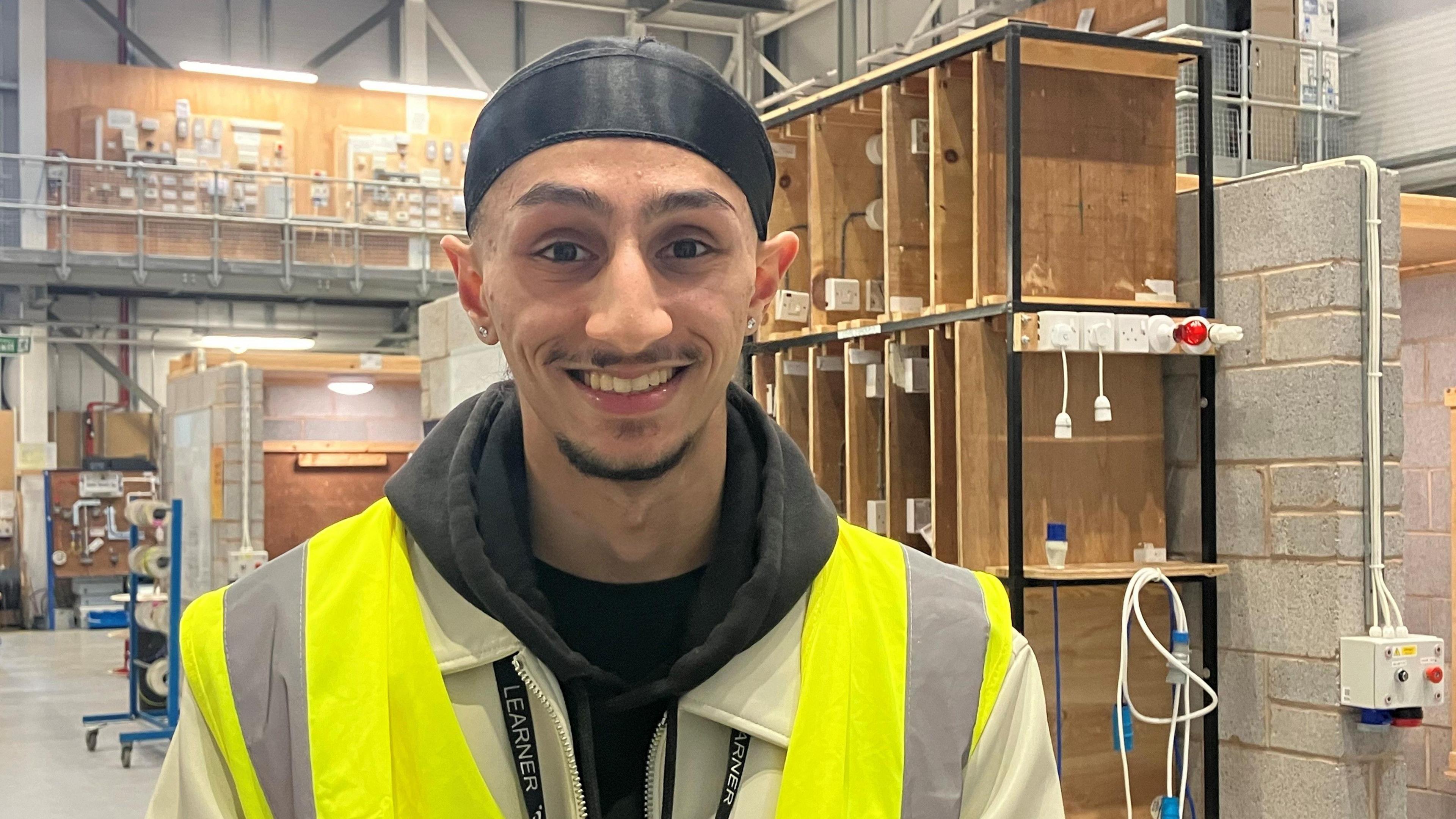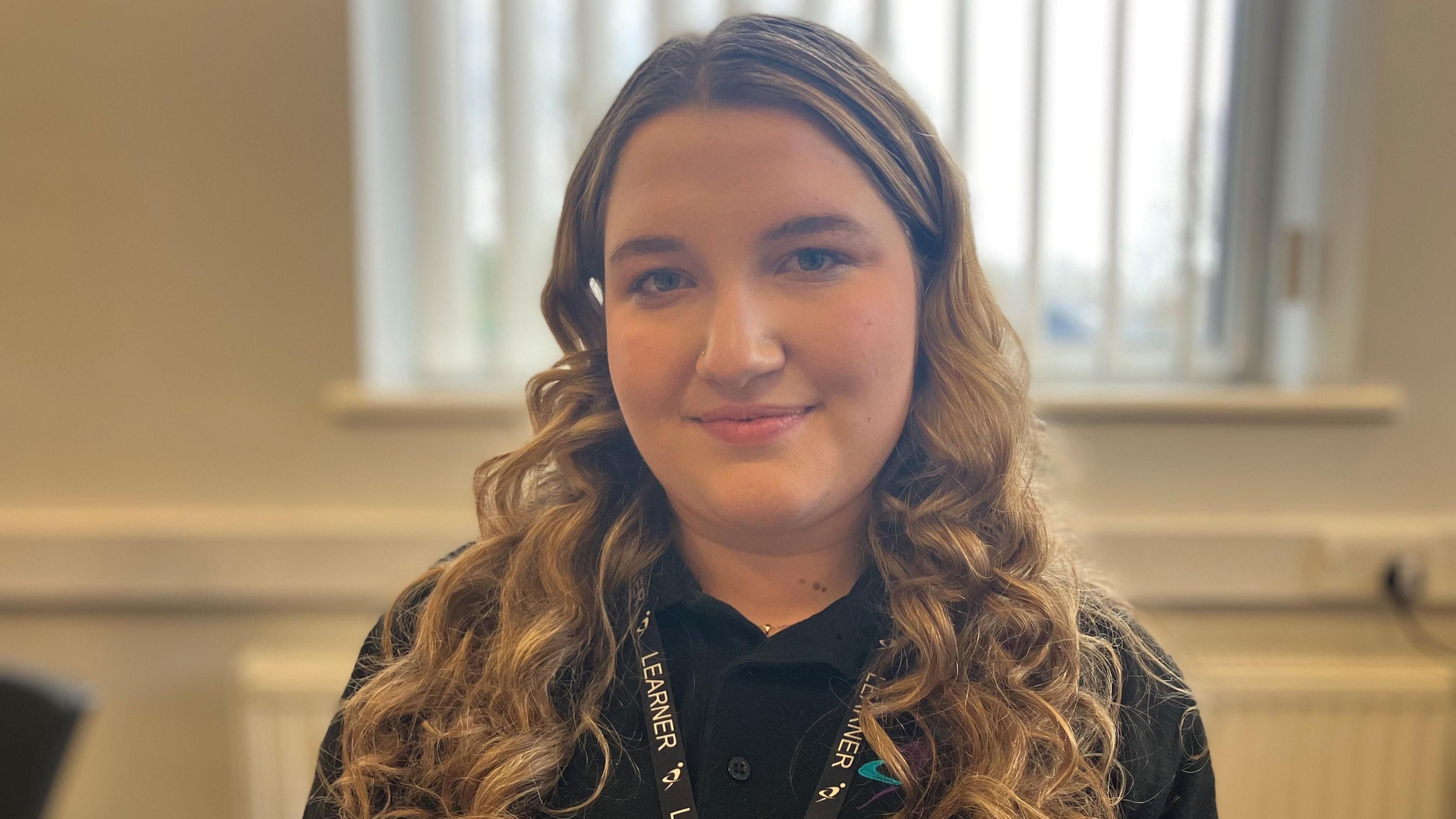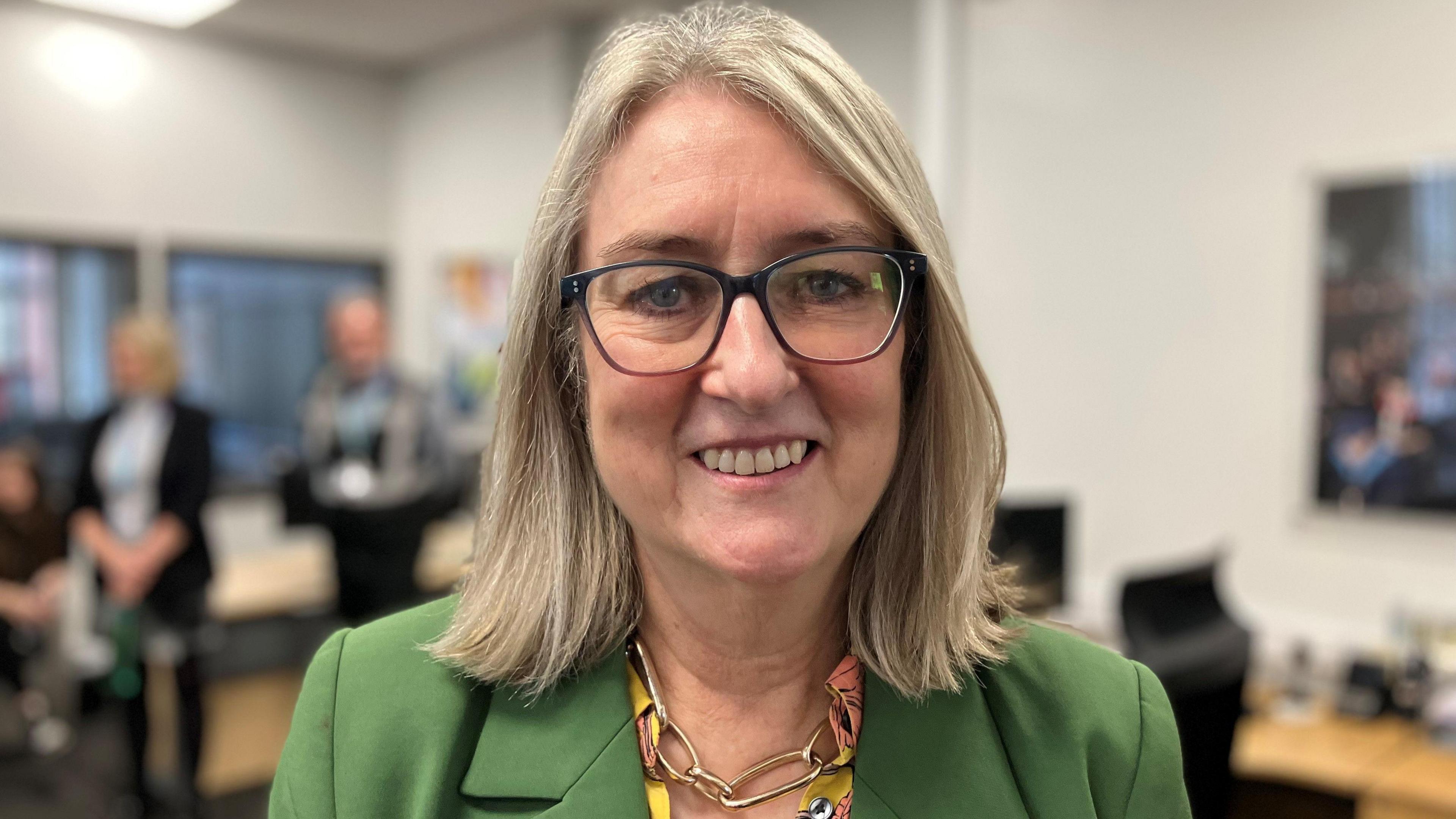'I didn't think I'd go to college, until I found T-levels'

Electrician student Prem Singh Dhamrait, 19, said he was enjoying his T-level placement
- Published
"I'm a hands on learner. I prefer to be in action than sitting in the classroom."
Despite struggling at school student Roma, 17, can see that her T-level has given her a path to a teaching career.
First introduced in 2020, the vocational qualifications, external are aimed at 16-to-19-year-olds in England, and include a 45-day work placement. On Monday, the government announced changes to make the workplace experience more flexible.
“[Employers] treat you as if you're an actual colleague working with them… you learn everything that you need to,” said Prem Singh Dhamrait, 19, from Wolverhampton.
Many students at Dudley College, agree that the work placement – which makes up about 20% of the two-year T-level course - is a major attraction.
A second-year electrical installation student, this year Mr Dhamrait will carry out a placement with utility giant E.ON.
He said the course would give him a variety of options for then getting a job.
“I could do meter tech... I could do fire alarms… I could be a normal or domestic electrician… which I feel is a good benefit for the T-level,” he says.

When he finishes his T-level, Prem Singh Dhamrait will have a qualification that is the equivalent of three A-levels
Of around 5,000 full-time students at Dudley College, 550 are studying T-levels this year.
“I struggled a lot in school and I thought A-levels was just a version of school that was just harder," said Roma, 17.
"I didn't think I would be going to college or anything, but once I found the T-level, I knew I could get where I want to be."
“It's not common for my family to go into higher education, but I wanted to break that cycle.”

Roma, 17, is in her first year of studying an early years T-level
First introduced in 2020, T-levels had a mixed start, for students who took them on.
And, although the number of students taking the qualification has increased each year, a proportion still do not complete their course.
In 2022, a total of 71% of those who started a T-level in the UK finished the two-year programme.
An evaluation of industry placements last year also identified challenges recruiting employers to take part.
From January, students will be able to complete up to 20% of their placement hours remotely, rather than having to do them from a physical workplace.
Skills minister Jacqui Smith announced the changes on a visit to the college on Monday.
“We are really keen on T-levels. We want to make sure that they're working properly. That's the reason for the changes,” said Baroness Smith.
“We’ve listened to businesses and these changes reflect what they need to help them offer T-levels.”

Skills minister Baroness Jacqui Smith said the government was committed to T-levels and highlighted growing student numbers
The increased flexibility has been welcomed by Lacey, 16, who started a health and social care T-level at Dudley College in September.
“I think it will be helpful when we do placements next year.”
“I want to work as a midwife. I’d want to do it in a children’s ward, or a midwifery ward, instead of doing it on any ward in a hospital,” she said.
“It will give people more opportunities to get placements where they want to do it, instead of having to do it anywhere.”

Healthcare student Lacey, 16, said she picked a T-level course to give her a higher chance of getting into a top university to study midwifery
There are currently more than 20 T-Level subjects to choose from, external, including accounting, craft and design, engineering and media production.
Get in touch
Are you affected by the issues covered in this story? Share your experiences.
Follow BBC Birmingham on BBC Sounds, Facebook, external, X, external and Instagram, external.
- Published14 November 2024

- Published9 September 2024

